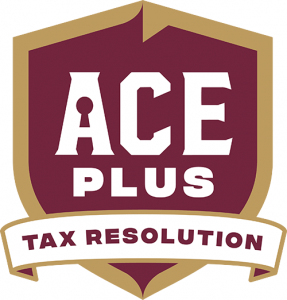Ace Plus Tax Resolution Encourages Small Business Owners To Create Strategies To Maximize Tax Benefit From New PPP Loans
James Cha, CTRS, highlights the need for strategies to maximize tax-favored benefits utilizing newly enacted PPP Loans in the Consolidated Appropriations Act.
LOS ANGELES, CA, USA, December 26, 2020 /EINPresswire.com/ -- James Cha, a CPA and a Certified Tax Resolution Specialist from Ace Plus Tax Resolution, highlights the need for a strategy utilizing a newly enacted PPP Loans and Consolidated Appropriations Act.The new COVID-19 relief can essentially be viewed as the CARES Act for 2021. Though the new act provides similar reliefs to the small to medium-sized business owners, there are a few notable differences. This act is expected to aid small to medium-sized business owners and individuals that have been severely impacted by COVID-19.
Deductibility of Business Expenses Paid out of Forgiven PPP Loan
Under the CARES Act, the forgiven PPP loan was considered non-taxable income. However, the business expenses spent with the loan were non-deductible. The IRS and Treasury have held the position that they cannot provide double benefits towards PPP loans.
However, Congress reversed and overrode that decision through the new bill. The new bill states that any business expenses (ordinary and necessary) paid by a forgiven PPP loan can be deducted. Normally, a forgiven loan gives rise to taxable cancellation of debt income.
Certified Tax Resolution Specialist, James from Ace Plus Tax Resolution says this new act is “like a Christmas gift for the business from Congress. Small to medium-sized business owners who receive PPP, previously worried about non-deductibility and paying extra taxes, can find relief.”
PPP Loan Eligibility
It’s important to note who’s eligible to apply for this new loan that’s opened through March 31, 2021. The new PPP loan will first be available to first-time qualified business owners and then to those who previously received a PPP loan.
For the first-time borrowers, they must have 500 or fewer employees, be sole proprietors, independent contractors, and eligible self-employed individuals. They can also be non-profit organizations like churches. The businesses can also be accommodation and food services operations under NAICS codes starting with 72, but they must have fewer than 300 employees per location.
For business owners who already received a PPP loan, they must have 300 employees or fewer, used up or will use the full amount of the previous PPP loan, and show a 25% gross revenue decline in any 2020 quarter compared to the same quarter in 2019.
It’s important to note that previous borrowers who returned all or part of a previous PPP loan are eligible to reapply for the maximum amount available to them, and that receiving EIDL loan or grant doesn’t affect PPP eligibility. PPP-2 of under $150,000 will be easily forgiven through a simplified application.
James adds that “SBA will not question necessity certifications for loans under $2 million, but the other government actors (IRS, US Attorneys) may. So business owners must make sure they can prove that they meet the necessity certification in case of an investigation.”
Deferred Payroll Taxes
The bill further helps the business owners by pushing back the payback period of the deferred payroll taxes (period starting from Sept. 1 through Dec. 31, 2020) even further. The bill extends the payback deadline from April 31, 2021 to December 31, 2021.
Business Meals Deductibility
Another notable benefit of this bill is that business meals (provided by a restaurant) are now 100% deductible in 2021 and 2022, compared to the previous 50% for business meals. This is a huge change for businesses.
Expansion and Extension of Employee Retention Tax Credit
The bill also extends the employee retention tax credit to apply to a covered employee’s compensation through June 30, 2021. The credit, originally part of the CARES Act, was set to expire with respect to compensation paid after December 31, 2020. It increases the tax credit from 50% to 70% of wages (up to $10,000) for each quarter, and the maximum benefit amount is capped at $14,000.
Solutions to Those Who are Struggling with Back Tax Problems
Ace Plus Tax Resolution provides permanent solutions to taxpayers with IRS and state tax problems to individuals and businesses struggling with unmanageable IRS tax problems. If you’re struggling with payroll tax problems, contact their tax professionals for a free consultation. Other solutions include Offer in Compromise, and other services.
Learn more at - https://AcePlusTaxResolution.com
Watch why you should file back tax returns here and how a tax professional can help you. - https://www.youtube.com/watch?v=6-761u9qxJs
James Cha is a CPA and Certified Tax Resolution Specialist® at Ace Plus Tax Resolution, has been representing his clients and dealing with the IRS for over 30 years. His practice is in Los Angeles, but his clients are across the nation.
JAMES CHA
Ace Plus Tax Resolution
+1 213-600-7388
email us here
Visit us on social media:
Facebook
Twitter
LinkedIn
Watch why you should file back tax returns here and how a tax professional can help you.



